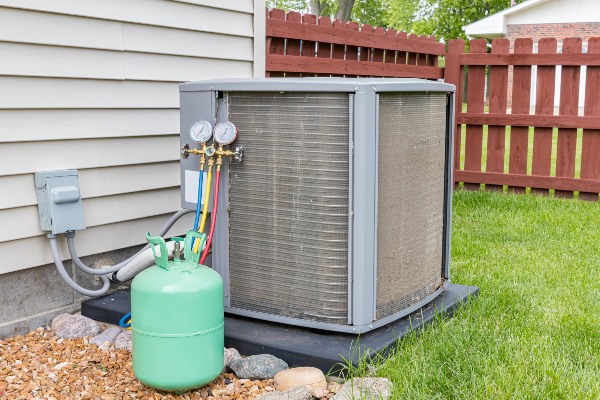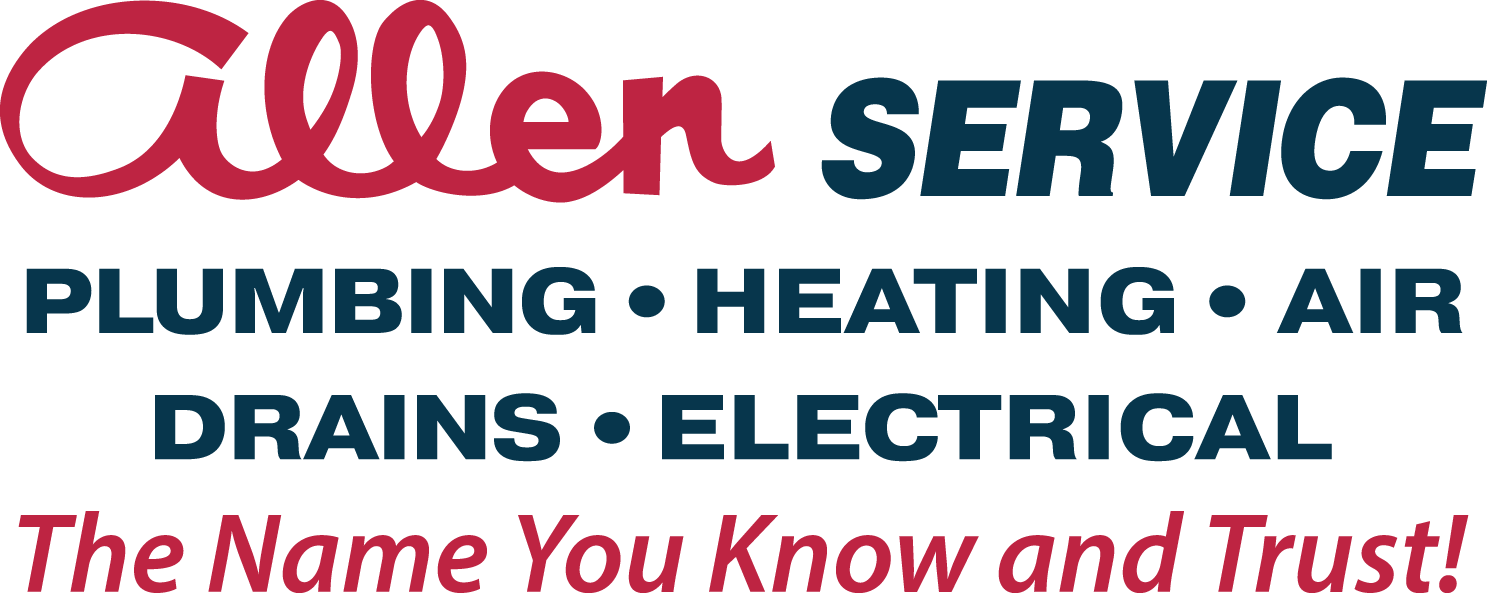
Changes to R22 Air Conditioning in Fort Collins, CO
Changes are here for R22 air conditioning systems in Fort Collins and throughout North Colorado, and it’s time to prepare for what’s next. This refrigerant has been a staple in colling systems for decades, but its environmental impact has led to its complete phase out. With the deadline rapidly approaching, ensuring your air conditioner meets modern standards is crucial. Transitioning to updated refrigerants or upgrading your HVAC system can safeguard your comfort and compliance. At Allen Service, we specialize in providing tailored solutions to keep your system efficient, environmentally friendly, and ready for the future.
What Are HCFCs and R22 Air Conditioning Units?
Hydrochlorofluorocarbons (HCFCs) are chemical compounds widely used as refrigerants in cooling systems. These compounds, including the R22 refrigerant, contribute to significant environmental issues such as ozone layer depletion and global warming. R22 has been a common choice for HVAC systems due to its efficiency, but its harmful environmental impact has led to its phase out. This regulatory decision aims to reduce ozone-depleting substances and encourage using more sustainable alternatives. Homeowners with an R22 air conditioning unit must plan carefully for future maintenance, repairs, or replacements as their availability decreases.
Why is R22 Refrigerant Being Phased Out?
The Environmental Protection Agency (EPA) began the R22 phase out in 2010 as part of efforts to protect the ozone layer. R22 and HCFC-142b were identified as contributors to ozone depletion and global warming. Safe alternatives, like R32 and R290, have since entered the market with zero ozone depletion potential and lower global warming impacts. Protecting the ozone layer, Earth’s natural shield against harmful UVB rays, remains a top priority for preserving our planet.
The Structure of the R22 Air Conditioning Phase Out
The phase out was designed with a deliberate and phased structure to minimize disruption while addressing environmental concerns. This schedule allowed AC services and homeowners ample time to adapt to the changes by transitioning to alternative refrigerants, upgrading systems, and ensuring compliance with environmental regulations. The timetable set specific milestones over two decades to steadily reduce R22 available without creating a sudden economic burden. Each phase effectively reduced production and importation, ultimately paving the way for a complete ban by 2030. Below is a breakdown of the timeline and structure of the phase out:
- January 1, 2010—The initial phase restricted the production, import, and use of R22 and HCFC-142b. These compounds were permitted solely for servicing existing systems, ensuring the continuity of operations without requiring premature replacement.
- January 1, 2015 – The phase out expanded by banning the production and import of all HCFCs except for refrigerant equipment that needed ongoing servicing. This step gradually reduced HCGC dependency across various applications.
- January 1, 2020 – The availability of R22 refrigerant was further limited as all remaining production and imports ceased. At this stage, only recycled or previously stockpiled R22 became available for system maintenance, prompting users to accelerate the transition to newer alternatives.
- January 1, 2030—The final stage will completely stop R22 and HCFC production and imports. This milestone ensures total elimination, signaling the industry’s shift to environmentally friendly refrigerant solutions.
How the Phase Out Affects You
For homes with old HVAC systems impacted by the air conditioning R22 phase out, there are a few key factors to consider. While it’s still legal to use these systems, obtaining R22 for repairs or servicing will become increasingly difficult and expensive as supplies run out. Systems installed just before the ban may naturally reach the end of their lifespan before the transition is complete. However, rising demand for stockpiled R22 refrigerant is driving up costs, making now the perfect time to explore alternative solutions.
HVAC Services to Navigate the R22 Phase Out
The R22 phase out requires proactive planning to ensure your cooling systems remain efficient and environmentally friendly. While you’re not required to immediately replace your unit, relying on R22 refrigerant in the long term will likely result in higher costs and limited availability. Taking action now can help you avoid serious inconvenience and unexpected expenses. Here are some practical steps you can take to manage the transition. From upgrading to modern equipment to scheduling regular maintenance, these solutions will help you stay prepared:
- Upgrade to Modern Systems – Investing in a new HVAC unit that uses legal, eco-friendly refrigerants is one of the most efficient steps you can take. Not only will this eliminate your reliance on R22, but modern HVAC systems also significantly reduce energy costs, saving up to 50% on utility bills. These upgrades enhance performance and benefit the environment.
- Consider Retrofitting Your Unit – Retrofitting your existing HVAC system allows it to operate with compatible refrigerants like Puron. This process involves carefully flushing the system, updating components, and ensuring compatibility with the new refrigerant. Retrofitting is a cost-effective solution for those not ready to purchase a new system but need immediate compliance.
- Schedule Professional Maintenance – Regular maintenance by experienced AC services is crucial during this phase out. Technicians can identify potential issues early, extend the life of your system, and optimize its efficiency. Maintenance checks also prepare your system for future refrigerant adjustments, providing a smooth transition and reliable performance.
Trust Our AC Services
Don’t wait until the R22 phase out impacts your comfort and budget. Reach out to our qualified HVAC system experts to discuss your options and create a plan tailored to your needs. Whether it’s upgrading to a modern system, retrofitting your current unit, or scheduling essential maintenance, taking proactive steps now ensures a seamless, stress-free transition. Protect your home, save on energy costs, and stay prepared for the future. Contact us today to get started and safeguard your HVAC system.
